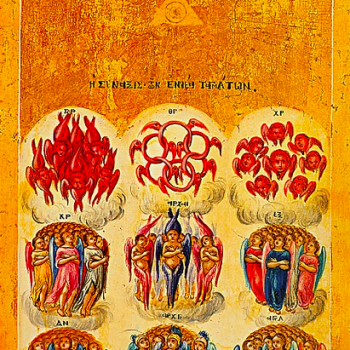But he is not just assuring her of the resurrection at the last day, though the gospel of John includes that promise (6:54, "Those who eat my flesh and drink my blood have eternal life, and I will raise them up on the last day."). He is affirming the "realized eschatology" of John 5: 24: "Anyone who hears my word and believes him who sent me has eternal life, and does not come under judgment, but has passed from death to life."
The detail that Lazarus had been dead four days by the time Jesus got there is meant to underscore that he was beyond resuscitation. The rabbis believed that the soul hovered over the body for three days and after that, there was no hope of resuscitation (Brown. 423).
Come and See
"Where have you laid him?" Jesus asks the crowd. They say, "Lord, come and see" (Jn. 11:35). It is hard not to flashback to 1:39 when would-be disciples were seeking Jesus out, asking, "Lord, where are you staying?" And he responds, "Come and see." His invitation to us is, "Come from your places of death and see my light and life." Here, as a prelude to raising Lazarus from the dead, Jesus is willing, on our behalf, to come and see death face to face, up close and personal.
His response is to be "greatly disturbed in his spirit" (11:33). Other places in the gospels when Jesus shows this kind of emotional, spiritual disturbance that expresses itself in weeping are in Gethsemane (Lk. 11:39-46), and when he laments over Jerusalem (Lk. 19:41). These occasions have something in common: Jesus comes face to face with all that opposes him: sin, death, hatred. His response is lament and anguish. There may also be an element of indignation, almost of anger.
Jewish burial rite did not include embalming. The oil and spices used would have held unpleasant odors at bay for a while, but after four days it would have been overpowering. Except that the stench of death here meets the fragrance of the resurrecting power of God's Son.
When Jesus says, "Take away the stone," the reader can't help but be reminded of Jesus' coming resurrection. Our knowledge of the reality of future life colors our experience of present death.
Then Jesus cried out with a loud voice, "Lazarus, come out!" The verb kraugazein occurs only eight times in the whole Greek Bible, six of which are in John. In chapter 18-19 it is used four times for the shouts of the crowd to crucify Jesus. The crowd's shout brings death to Jesus. Jesus' shout brings life to Lazarus and to us (Brown, 427).
Lazarus is us, bound by death in our current lives, called to life by Jesus who is the Light and the Life of the world. Jesus stands at the edge of our tomb, shouting "Come out!" We are to substitute our own name for that of Lazarus, hear his command, and walk into the light of day, pulling free of our grave clothes as we go.
Sources Cited
Raymond E. Brown, The Anchor Bible Commentary on the Gospel According to John, Vol. 1, Chapters 1-12





